Nablai's Nebula
September's basking in its fiery autumnal flame and there's so much left to do of this year's game. These months have taught us and made us better than before. Which is why this month's theme focuses on could-have-beens. Time heals all and post-time travel is the genre on which alternate universes stand tall.
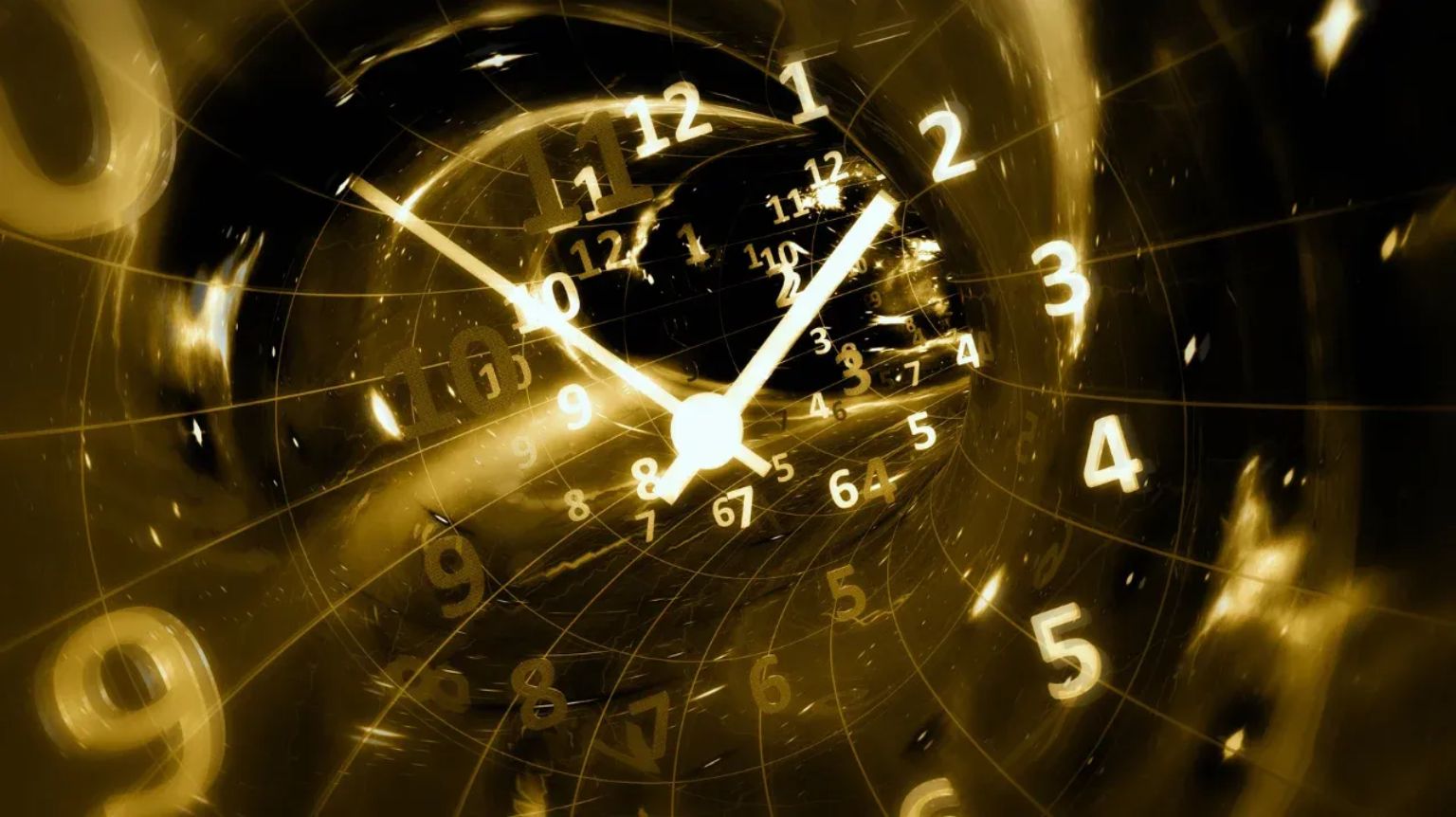
Post-time travel selected teleportation is a quantum mechanics theory that studies time travel. It's juxatoposed with different quantum theories of time travel, which includes Deutsch's theory of closed-timelike curves (CTCs). There are a couple of things I'd like to share about this fascinating genre.
Forward time travel
This phenomenon is easily explained by general and special relativity. But we are still lagging in our present-day technology in unable to make a body advance or set back more than a couple of milliseconds compared to the other.
Backward time travel
General relativity can give results for backward time travel such as a rotating black hole with relative ease. In theoretical physics, the theory of traveling to an arbitrary point in spacetime is abstract and unsustainable.
Time travel in movies
The film-making industry world-wide has their characters use exceptional machines, special magical devices, or contemporary high-tech cars for post-time or any other time travel.
Time travel and philosophy
As we are aware with the fundamentals of time, most apprehensions concentrate on extrinsic time. Post-time travel happens when the span of the journey refuses to align with the time traveler's personal and exterior time.
It's like cause and effect-- an action is performed (our character time travels to the past), which in turn causes an effect, the consequence (the timeline has infinitely changed).
Even though the word "consequence" has negative connotations, it doesn't necessarily have to be negative in general. It can also pertain to a lot of positive effects.
As a complete, myriad genre in itself, post-time travel comprises of sci-fi, mystery, fantasy, history, romance, paranormal and many many more genres. The choices are endless, and the sheets of paper are ours to fill with our imaginative prowess. As with all other genres, this one also has well-defined set of time travel chronicles, each with its own distinct rules along with each of their unusual perspective.
When we classify post-time travel stories, our initial thoughts are--what exactly is post-time-travel and how does it work? My earliest memory of post-time travel was watching the movie "Back to the Future" and fangirling over its cool time machine and futuristic spaceships.
In retrospect, the oldest time travel movies and stories were all about nailing the basics of this genre.
1. Seeing the future:
It's literally information travelling across time. Even as this explanation might be the most scientifically believable form of time travel, it is actually happening all the time on the quantum level.
Though the rudimentary storytelling devices have changed and evolved with the ongoing times, they have manifested numerous technological advancements. There are characters who connect to the future through newspapers (the film It Happened Tomorrow, which inspired the show Early Edition), letters (The Lake House), radio (Frequency) photography (Time Lapse) and now, the Internet (Wargames(1983), Johnny Mnemonic (1995))
The stories look forward in time separate into two categories on the principle of one important question--if you can see the future, will you change it?
1a: Stories of Inevitable Foresight:
These are ones where the future can be seen—but nothing can be done to stop it from happening.
The prototype is one of the oldest works of dramatic literature in the Western canon—Sophocles' play Oedipus Rex, where the titular king is warned by the seer Tiresias that he will murder his father and wed his mother and despite his best efforts, he ends up accidently doing exactly that and he gouges his eyes out as a way to repent for his sins.
Stories of unavoidable prophecy reflect one of our deepest fears of no free will, no agency, no power to control our destiny. A glimpse into the future, foresight of the events to occur, only ends up causing the things we work so hard to prevent.
Philip K. Dick, author of Minority Report(1956) is similar to Oedipus Rex as it features a future society, where three mutants foresee all crime before it occurs. Plugged into a great machine, these "precogs" allow a division of the police called Precrime to arrest suspects before they can commit any actual crimes. When the head of Precrime, John Anderton, is himself predicted to murder a man whom he has never heard of, Anderton is convinced a great conspiracy is afoot.
In the end, his character ends up going through with the predicted murder.
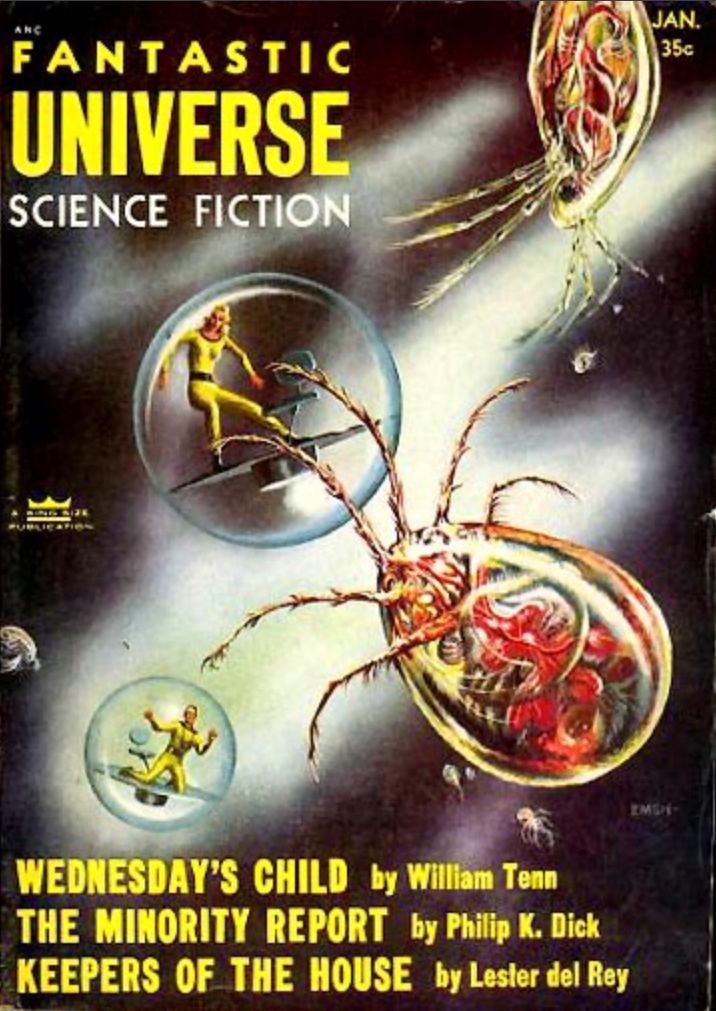
1b: Stories of Preventable Foresight
Some stories of glimpsing at the future treat changing the timeline as avertable. It's the very act of viewing what lies ahead empowers the character to alter things, and prevent the predicted circumstances from occuring. In the movie "Early Edition", this is how it worked, with Kyla Chandler having the thankless daily task of preventing disasters as only he could foresee.
The archetype for the post-time travel genre is tracked down to probably 1843, in A Christmas Carol by Charles Dickens. How do we not define the Ghosts of Christmas Past and Yet To Come as post-time travel in the scene when Scrooge beholds the sad sight of Tiny Tim dead, his own grave abandoned and then... he is promised a chance to rewrite his story if he can just change his ways for the better.
In a variety of stories, information is not the only thing that travels through time. There are main characters and secondary characters that do post-time travel and the way writers treat their fictional journeys speaks a lot about who they are as a person.
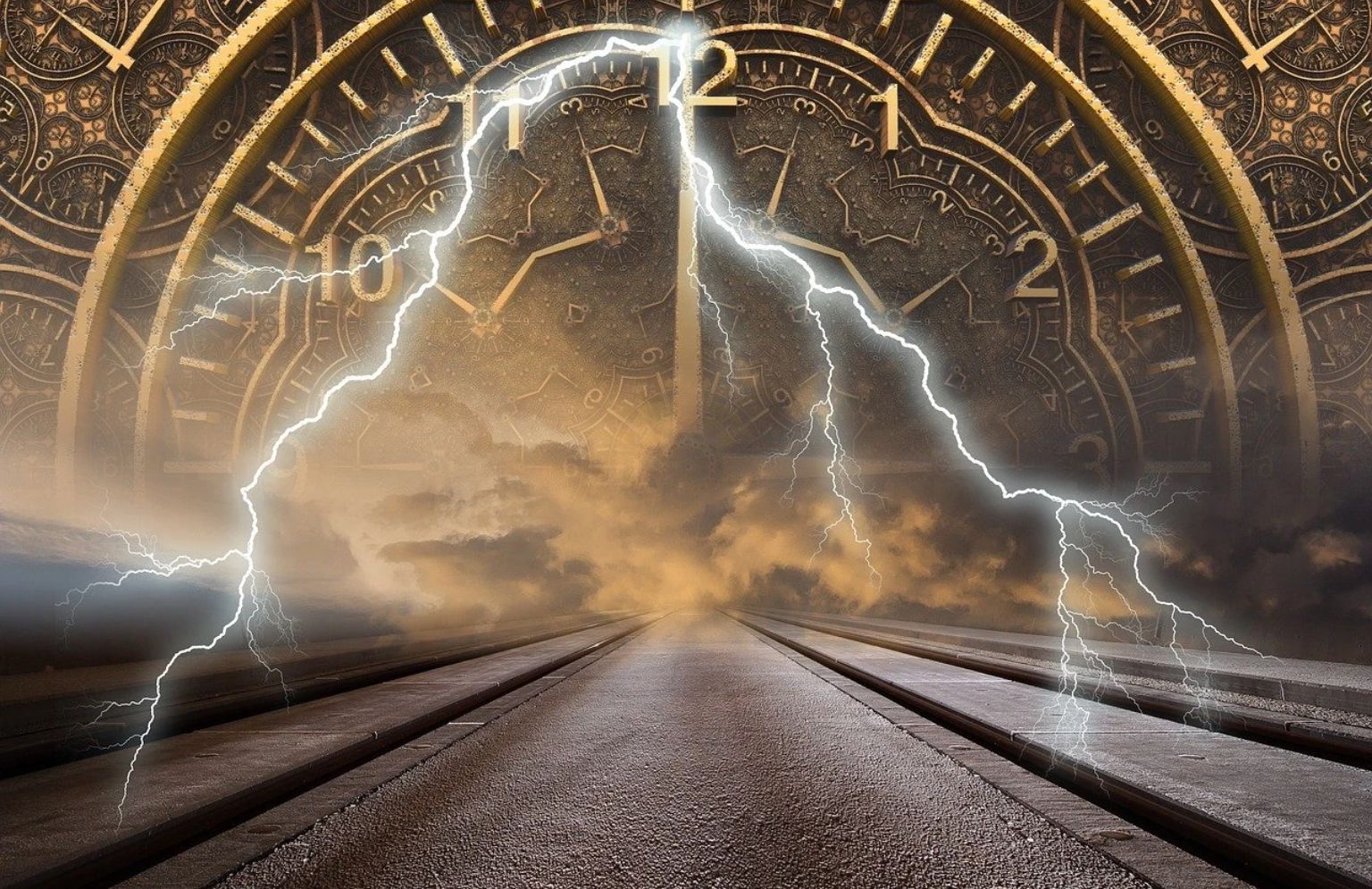
2. Travelling to the future
H.G Wells is one of the most conspicuous originators of the post-time travel. His "The Time Machine" has a man speeding into the distant future. And to his surprise, the world he encounters--is full of peaceful Eloi and belligerent Morlocks and a big disconnect from our own.
I think the problem with post-time-travel is, that the future seems so ambiguous, it sometimes ends up being less rivetting than expected. Which is why a few stories make our present-day the future of the characters—like Time After Time, which features Jack the Ripper fleeing 1890's London and winding up (via a time-machine that belongs to H.G. Wells) in 1970's San Francisco. Maybe, just maybe, in the original Planet of the Apes, post-time travel has been used as a last-minute twist ending.
Which leads us to our third point:
3. Time Loops
This is basically the final category —the peak of unchangeability--multiple stories where a character is stuck reliving the same day over and over and over again. The prototype here is the 1993 comedy Groundhog Day. The formula it set out brilliantly has been replicated in other genres, including but not limited to YA melodrama "Before I Fall", slasher-horror "Happy Death Day", sci-fi action with aliens "Edge of Tomorrow", sci-fi action without aliens "Source Code, ARQ", Marvel's "Dr. Strange" in the ending battle with Dormammu, episodic existential-dramedy "Russian Doll" and comedy "Palm Springs", Star Trek TNG.
These movies highlight the same theme which is "life doesn't change until you change".
The general takeaway from this genre is that most post-time travel stories are admonitory tales. Trying to meddle with history is punished and defying prophecies are futile. The base-line of these stories, for all their leaps, loops and continuums through time is-- if we want to change our lived reality in every way possible, the change starts with us. Period. Everything else is just noise.
Here are some recommendations:
Always by @Holywoodunderfed
Summary: Max had just traveled back and saved Arcadia Bay. How can she live with herself when her best friend, her sister, her time traveler warrior is gone? But with a new timeline comes new problems. She may need a new partner in crime. (Told through the perspectives of both Max and Warren)
Pokémon Red by @Gaidaros
Summary: A 10-year-old boy, with a goal to become a Pokemon Champion, sets out on a journey across the Kanto Region. A journey charged with friendships, fun, and battles. Team Rocket, a criminal organization with disastrous plans is hiding mind-blowing secrets. Buckle up, cause it's going to be one hell of an adventure!
The Descent by @TechieInAK
Summary: After Denton foils a terrorist attack at an Intergalactic sporting event, he finds himself racing to save his homeworld from a plot of betrayal and revenge.
When Denton Staxx, a special agent with the Orbital Security Services, discovers the Intergalactic Olympic Games have been targeted by a terrorist attack, he rushes to Earth to try and stop the event before it's too late. But what he discovers on earth is far worse than he imagined, and Denton is quickly pulled into a galaxy-wide conspiracy that takes him from one solar system to another in the search for a mastermind that will stop at nothing to get his revenge on the richest man in the universe -- regardless of the innocent people who die along the way.
I'd love you to share your favourites in the inlines here-->
A couple of novels from the real world:
Replay by Ken Grimwood
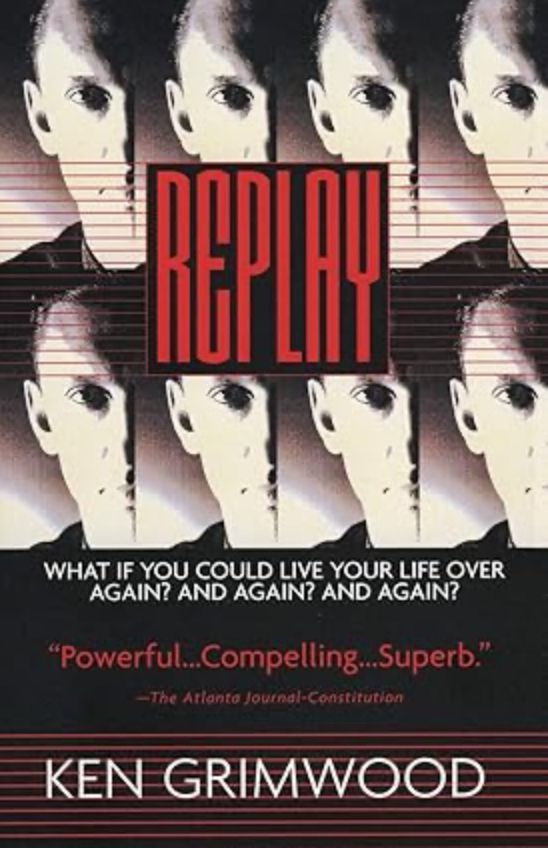
Summary: Jeff Winston, forty-three, didn't know he was a replayer until he died and woke up twenty-five years younger in his college dorm room; he lived another life. And died again. And lived again and died again -- in a continuous twenty-five-year cycle -- each time starting from scratch at the age of eighteen to reclaim lost loves, remedy past mistakes, or make a fortune in the stock market. A novel of gripping adventure, romance, and fascinating speculation on the nature of time, Replay asks the question: "What if you could live your life over again?"
The Time Ships by Stephen Baxter
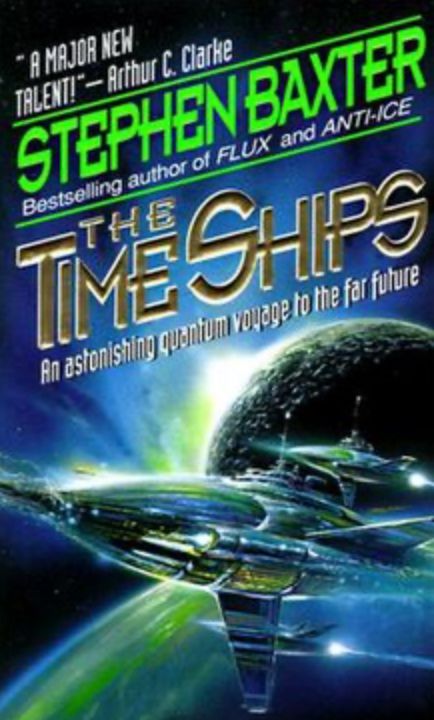
Billed as "the authorized sequel to The Time Machine," The Time Ships tells the story of the Time Traveler's quest to return to the far future world of the Eloi and Morlocks to rescue Weena. He soon discovers that his previous trip through time has altered the course of future history, and the time and place he seeks no longer exists. Nominated for a Hugo and winner of the 1996 John W. Campbell Memorial Award, the 1996 British Science Fiction Association Award, and the 1997 Philip K. Dick Award.
Doomsday Book by Connie Willis
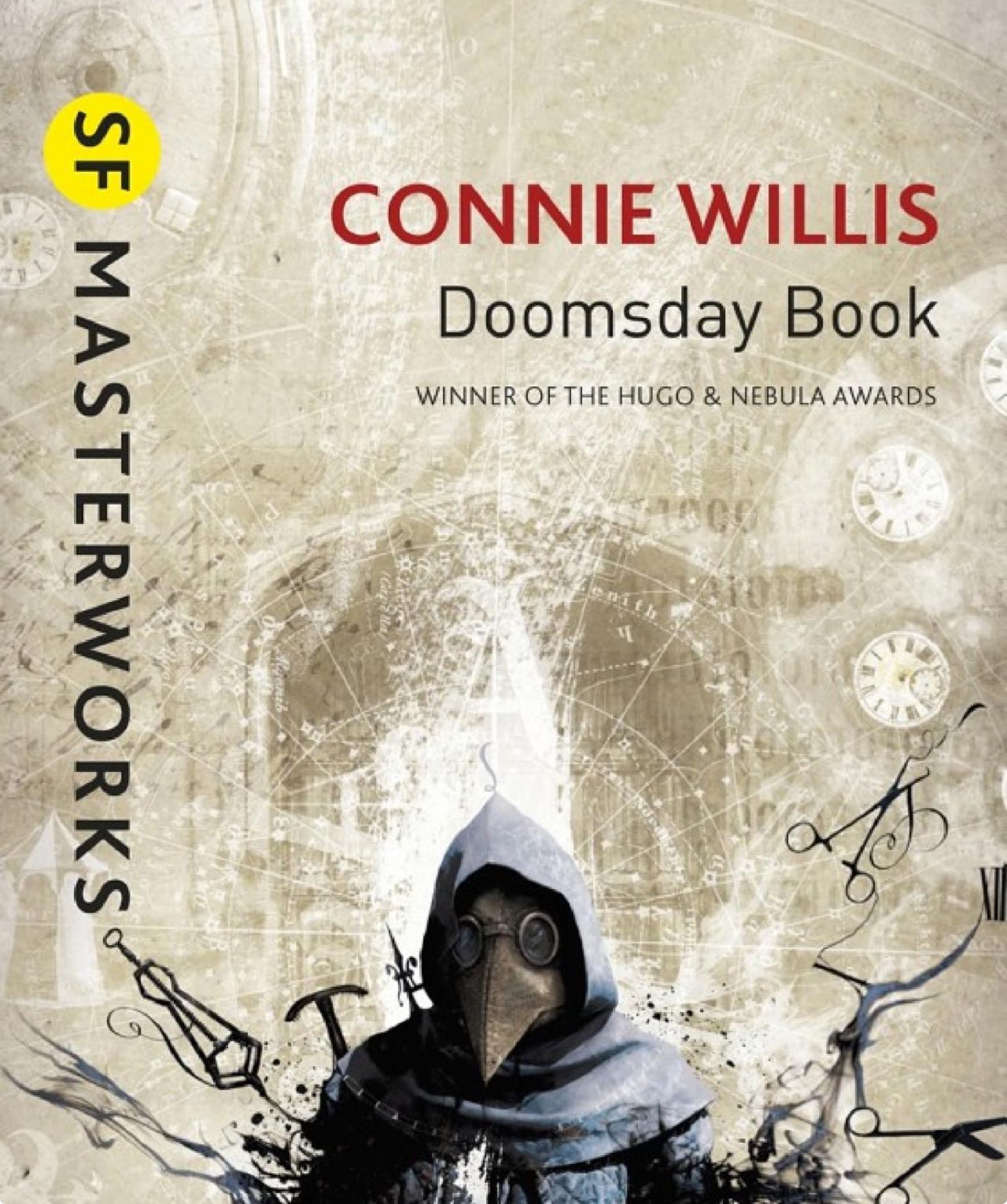
Co-winner of the 1993 Hugo Award, winner of the 1993 Nebula Award and 1993 Locus Award for best novel. In this meticulously researched story, Kivrin, a 21st century history student, is stranded in time in a 14th century English village. Parallel stories develop: Kivrin witnesses the ravages of the Black Death, and modern England reels from the outbreak of a mysterious disease. While justifiably criticized for stilted plot devices that result in a sense of contrived suspense, Doomsday Book offers a fully realized and realistic depiction of 14th century England and the tragically human dimensions of the Black Death.
And this is all for today ❤️ I'll meet you in October with another exciting genre. Till then, it's a bye and take care from me 😄 Stay safe and happy! ❤️
Cheers, Nab =]
Bạn đang đọc truyện trên: AzTruyen.Top